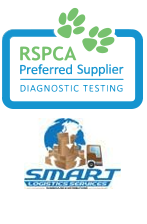The New Zealand Veterinary Association (NZVA) has advised its members that providing fitness-for-transport certification for cows in the last four weeks of pregnancy should be avoided.
Cows are in or approaching this time of their pregnancy right now, and the NZVA’s advice is that the animals should not travel long distances at this stage of their pregnancy.
NZVA Chief Veterinary Officer Dr Helen Beattie BVSc said the association’s veterinarian members have been advised not to certify cows as fit for transport if the animals are within the final four weeks of giving birth, even if they are caught up in the culling required as a result of the cattle disease Mycoplasma bovis (M. bovis). The no-transport advice applies to travel of more than two hours between properties or to the meat works for slaughter, and is in line with DairyNZ’s advice to famers.
“The NZVA’s intention is to provide advice that is in the best interests of animal welfare and will provide clarity for farmers and veterinarians about this issue during the M. bovis eradication response.”
“The NZVA and its members are working closely with the Ministry for Primary Industries (MPI) and farmers to identify other options for late pregnancy cows, as the welfare of the animals is paramount. A heavily pregnant cow is already physiologically stressed and in their condition they should not have to undergo the ordeal of travelling in a stock truck for long hours, standing all the while and not being able to lie and down and rest.
“It is legal to transport pregnant livestock but, in our view, cows should not be transported in their last four weeks before calving. Veterinarians should not be asked to clear them for transport when it is clearly not in the cows’ best interests.”
Dr Beattie said the NZVA continues to work alongside MPI and industry stakeholders to help farmers deal with the many challenges and uncertainties created since the disease was discovered in New Zealand one year ago.
“One of the closest and most trusted advisors a farmer has is their veterinarian. We fully support MPI’s focus on the farmer and their welfare, as well as the animals, during this phase of the M. bovis eradication response. The NZVA is keeping veterinarians well-informed, and providing advice where needed, so that the profession can give the best advice possible during such a difficult time for dairy and beef cattle farmers, particularly those caring for affected herds.”
Farmers should seek advice from MPI response personnel if a cow cannot be certified for transport because it is in the late stages of pregnancy. “Ideally, decisions need to be made before it gets to this point.”
Ends
Media contact: Lynley Jenkins, lynley.jenkins@vets.org.nz



